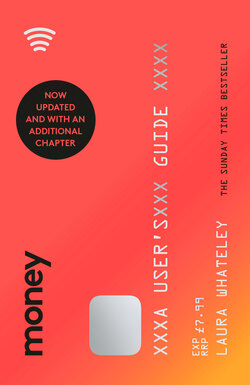Читать книгу Money: A User’s Guide - Laura Whateley - Страница 27
What is your credit score and why does it matter?
ОглавлениеWhen it assesses whether or not you can afford a mortgage, a bank will score your creditworthiness based on information it can gather from your credit history or credit file as well as your bank statements. Your credit history is a record of your interactions with other financial companies: banks, energy providers and so on, kept by credit-reference agencies. Your prospective lender is looking for evidence of past borrowing behaviour to assess whether or not you will be a well-behaved borrower going forward.
You are also judged on things like how long you have been with the same employer, how long you have lived at your address, and how long you have had your bank account.
Most banks, building societies and financial companies have their own arcane bespoke credit-scoring system, based on what factors they deem important as a yardstick of reliability. No one is quite sure how they all work, how they are compiled, and how banks use them. Underwriters at banks, that is the team that assess risk, will not reveal how they compile and assess credit scores because they are ‘commercially sensitive’, so you can be rejected for having, in their view, a bad score, without knowing why, or being able to argue that their criteria are wrong.
You do not have one single credit score – this is a myth – but UK banks use three credit-reference agencies in the UK for information: Experian, Equifax and Callcredit. They compile their own credit scores based on their own assessment of your credit history, and you can check them to get some idea of whether or not you look like a worthy borrower. They are useful, but just guidelines.
Despite their opaque nature, credit scores are annoyingly important, and used for everything from overdrafts and credit cards to mobile-phone deals and, crucially, mortgages. I have received letters in my role as consumer champion at The Times from people on the verge of losing a house they want, or unable to secure an affordable mortgage, because of minor bill infractions or disputes, like forgetting to clear a small sum owed to an energy company on an account for a shared flat after everyone moves out, or missing a mobile-phone payment. These have resulted in letters from debt collectors, which damaged the reader’s credit history.
One man thought his gas account had been put on hold over a bill he did not think he owed while it was investigated; instead it had been passed to debt collectors, and a ‘late-payment’ notice added to his credit report. As a result he was turned down for a cheaper mortgage, and estimated that it would cost him over £10,000 more.
One first-time buyer couple applied for three new bank accounts – a current account each, and a joint account with the same bank that had agreed to lend them a mortgage – because they were told it would simplify things. Instead their credit score was damaged by the fact that they applied for too many financial products at once, even though the bank was getting more of their business. Totally bizarre, but really expensive, they could no longer apply for a 95 per cent LTV mortgage; they had to find another £12,000 for a deposit for a 90 per cent one. Luckily their grandparents bailed them out, but others less fortunate would have lost the house.
